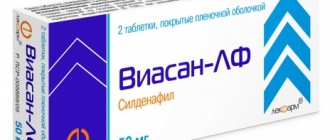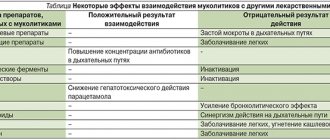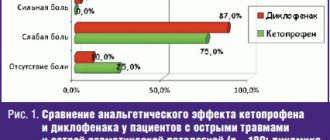Pharmacodynamics and pharmacokinetics
Thioctic Acid is a coenzyme for the oxidative decarboxylation of pyruvic acid and various alpha-keto acids . cholesterol metabolism , and binds free radicals. Under the influence of the drug, liver function improves and glycogen . The effect of exogenous and endogenous toxins and alcohol is neutralized. In terms of its biochemical activity, the medicine is close to B vitamins .
When alpha-lipoic acid to solutions for intravenous administration (if the solutions are compatible), the severity of adverse drug reactions decreases.
After oral administration, preferably without food, the substance is completely and quickly absorbed from the digestive tract. Bioavailability reaches 30-60%, since the product undergoes presystemic biotransformation. The drug is oxidized in the liver tissue. Excreted via the kidneys. The half-life ranges from 20 minutes to an hour.
Side effects
The following side effects may develop:
- vomiting, diarrhea , nausea, abdominal pain, urticaria ;
- itching and rash , anaphylactic reactions , hypoglycemia ;
- headaches , hypoglycemia ;
- after rapid intravenous administration - breath holding, increased intracranial pressure , diplopia , convulsions , bleeding.
special instructions
In patients with diabetes mellitus, especially at the beginning of treatment, frequent monitoring of blood glucose concentrations is necessary. In some cases, a reduction in the dose of insulin or oral hypoglycemic drugs is required to avoid the development of hypoglycemia.
During treatment, it is necessary to strictly abstain from drinking alcohol, since the therapeutic effect of lipoic acid is weakened when exposed to alcohol.
Concomitant food intake may interfere with the absorption of lipoic acid.
Several cases of the development of autoimmune insulin syndrome in patients with diabetes mellitus during treatment with lipoic acid, which was characterized by frequent hypoglycemia in the presence of autoantibodies to insulin, have been described. The possibility of developing autoimmune insulin syndrome is determined by the presence of haplotypes HLA-DRB1*0406 and HLA-DRB1*0403 in patients.
Interaction
The medicine reduces the effectiveness of cisplatin and enhances the effect of oral hypoglycemic drugs and insulin .
The substance cannot be mixed in the same container with dextrose , Ringer's solution , ethanol, and solutions that react with SH groups and disulfide bridges.
The product enhances the effect of taking carnitine .
Ethanol and medications containing ethyl alcohol weaken the effect of taking acid.
Chemical properties
What is alpha lipoic acid ? Thioctic acid also has the names thioctacid , lipoic acid . It is a vitamin-like substance, a cofactor of pyruvate dehydrogenase and alpha-ketoglutarate dehydrogenase complexes, and an antioxidant .
The substance is synthesized in the form of a light yellow crystalline bitter powder, which is insoluble in water, but highly soluble in ethanol. In medicines, a soluble form of a chemical compound is used - its sodium salt . The substance is found in large quantities in liver, spinach, kidneys and heart, and rice. The body is normally able to synthesize sufficient amounts of alpha lipoic acid . The medicine is produced in the form of a concentrate for infusion solution and intramuscular injection, in the form of film-coated tablets.
Alpha lipoic acid in bodybuilding
The substance is used by athletes to eliminate free radicals and reduce oxidation levels after training. The product slows down the processes of destruction of proteins and cells, speeds up recovery after training. The substance also accelerates and improves the absorption of glucose by muscles and stimulates the processes of glycogen . It is also believed that the acid can be used as an effective fat burner.
Reviews
Reviews from doctors about alpha lipoic acid are mostly positive. The medicine is quite safe to use, rarely causes adverse reactions (when administered intravenously in large doses), patients tolerate it well, and the medicine is often prescribed as part of complex treatment in combination with other vitamins and medications.
There are a lot of reviews about Thioctic Acid for weight loss:
- “... I recently took a course of the drug. I followed a diet and exercised. I’ve lost weight, I’m very happy with everything”;
- “... Even as a child, a doctor prescribed this acid to me for the treatment of dyskinesia, and since then there have been almost no problems with gallstones. But sometimes I take this substance for prevention. I feel great”;
- “... After the course I always lose a couple of kilograms, I feel such lightness in my body, I no longer want to eat fatty and sweet foods”;
- “... I took the full course, spent money and time, went to shaping as usual, but didn’t see any results. Just a waste of money”;
- “... It’s good, of course, that the medicine is inexpensive and I didn’t have any adverse reactions from it, it’s a vitamin after all. But I can’t say that I actually lost weight because of it. The weight remained the same.”
Overdose
Symptoms: headache, nausea, vomiting.
In case of acute overdose (when using 10-40 g), serious signs of intoxication may be observed (generalized convulsive seizures; severe disturbances in the acid-base balance leading to lactic acidosis; hypoglycemic coma; severe bleeding disorders, sometimes leading to a fatal outcome).
If a significant overdose of the drug is suspected (doses equivalent to more than 10 capsules for adults or more than 50 mg/kg body weight for a child), immediate hospitalization is necessary.
Treatment: symptomatic (including gastric lavage, taking activated charcoal), if necessary - anticonvulsant therapy, measures to maintain vital functions. There is no specific antidote. Hemodialysis is not effective.



